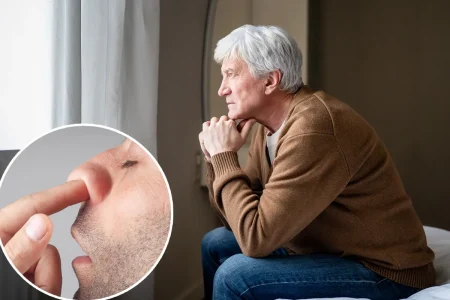Dear Abby: Navigating Ageism and Safety Concerns in Modern Society
In today’s society, where age-related prejudice can appear unexpectedly, a 54-year-old individual shares their painful experiences with ageism from younger neighbors. Despite being relatively young in the grand scheme of life, this person has faced hurtful comments about their lifestyle choices that others deemed inappropriate “for their age.” One incident involved a new purple winter coat, a cherished gift from a close friend, which prompted a neighbor to remark, “I didn’t know you could wear something like that at your age.” Another uncomfortable situation occurred in an elevator when the individual was taking their mountain bike out for a ride. A young couple openly mocked them, saying, “Nice bike! I didn’t know people your age could still ride mountain bikes,” causing everyone present to erupt in laughter. These encounters have led the individual to retreat behind headphones when in common areas, questioning whether maintaining dignified silence is the best approach or if there might be better ways to respond to such thoughtless comments.
Abby responds with empathy and practical wisdom, pointing out that 54 is far from “over the hill” and that many people in their 70s and 80s continue to lead active, vibrant lives. Rather than trying to educate these classless individuals, Abby suggests maintaining a good-humored approach. When faced with similar ageist remarks in the future, she recommends smiling and saying something along the lines of, “I hope you’re lucky enough to still be doing this when you reach my age.” This response acknowledges the comment without giving it power, maintains personal dignity, and subtly highlights the privilege of aging with health and vitality—then simply continuing on without looking back. This approach allows the individual to stand their ground while avoiding unnecessary confrontation or emotional investment in others’ ignorance.
In another concerning situation, a neighbor writes about witnessing a young child, approximately eight years old, riding a small but fast motorcycle without a helmet on their residential street. What makes this particularly troubling is that the child’s father is also a motorcycle rider, suggesting he should understand the inherent dangers. The neighbor feels increasingly angry at the parent’s negligence and terrified for the child’s safety, contemplating whether to contact child protective services but uncertain if this action would be appropriate or if there are legal requirements regarding helmet use that could guide their decision. The distressed neighbor seeks advice on fulfilling their responsibility as a concerned adult in the community without overstepping boundaries.
Abby responds with practical guidance, first suggesting that the concerned neighbor try speaking directly with the child’s father about these valid safety concerns if they haven’t already done so. She also provides important information about helmet laws, noting that in most states, helmets are mandatory for minors, with only thirteen states lacking such requirements. Abby recommends that the neighbor research their state’s specific helmet laws online. If helmets are legally required and the father remains resistant to ensuring his child’s safety, Abby affirms that contacting child protective services would be appropriate despite seeming extreme. The priority must be the child’s safety, especially considering the significant risks associated with riding motorcycles without proper protection.
To emphasize the severity of the situation, Abby shares a sobering personal anecdote about a conversation she once had with the director of an organ donation organization. When she inquired about who might be considered an “ideal” organ donor, the director’s response was disturbingly straightforward: “A 19-year-old man on a motorcycle.” This stark reality check underscores the devastating consequences that can result from motorcycle accidents, particularly among young riders. Abby grimly notes that organs from an even younger child would likely be “just as welcome, if not more,” highlighting the life-or-death nature of the safety precautions being ignored. This powerful perspective transforms what might seem like an overreaction into a necessary intervention to protect a vulnerable child from potentially fatal risks.
These two distinct scenarios presented to Dear Abby reflect broader societal issues that many face in their communities. The first deals with the increasingly prevalent problem of ageism, where individuals are judged, limited, or mocked based on arbitrary age-related expectations rather than their actual abilities or preferences. The second addresses the tension between respecting parental authority and intervening when a child’s safety is at risk. Both situations require thoughtful navigation of interpersonal boundaries and social responsibility. Abby’s advice in both cases emphasizes maintaining personal dignity while taking appropriate action—whether that means responding to ageism with graceful confidence or potentially saving a child’s life by reporting dangerous behavior to authorities. These responses remind us that standing up for ourselves and others sometimes requires different approaches, but always demands courage and compassion.
Dear Abby, the iconic advice column founded by Pauline Phillips and now written by her daughter Jeanne Phillips under the pen name Abigail Van Buren, continues to provide guidance on navigating life’s complex social situations. For decades, this column has offered readers a trusted source of practical wisdom on handling interpersonal challenges with grace and common sense. The enduring popularity of Dear Abby speaks to our universal need for thoughtful advice when facing difficult situations, from responding to unkind comments to knowing when to intervene for someone else’s welfare. Readers seeking further guidance can contact Dear Abby through her website or by mail, continuing a tradition of community support and shared wisdom that has helped generations navigate the complexities of human interaction with greater understanding and compassion.














